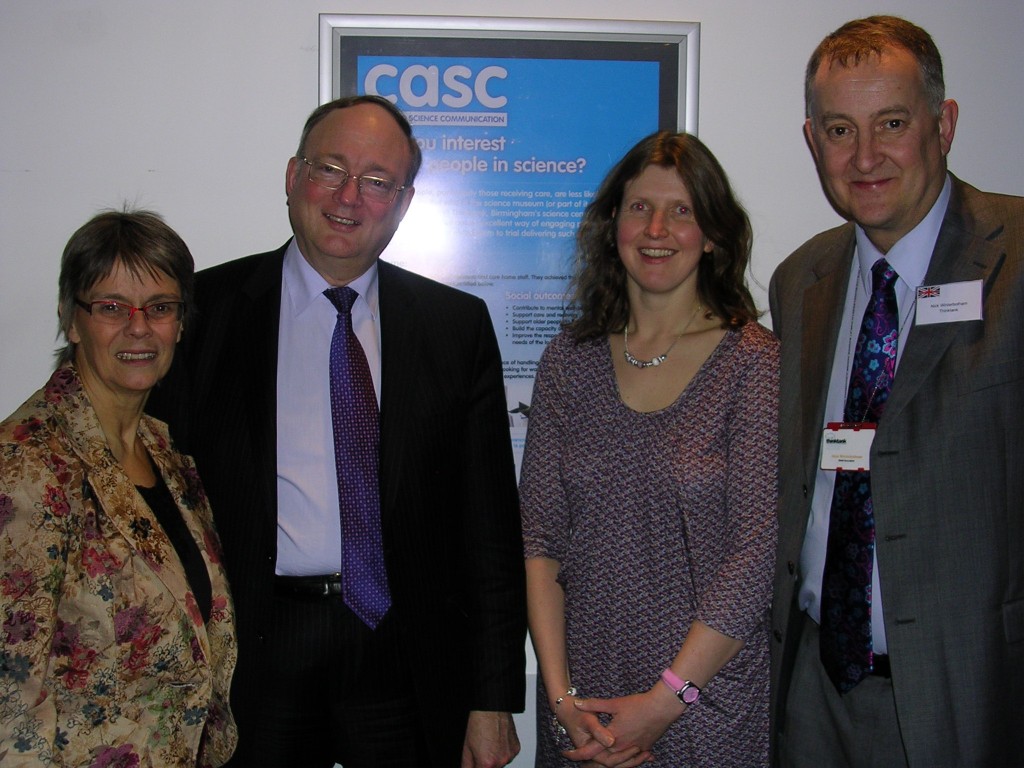Member of European Parliament (MEP) Malcolm Harbour delivered his speech at the conference after dinner, addressing the role of politics in developing science. He discussed the projects which have fascinated him and how his position in Europe allows him more freedom to focus on looking at the work he’s interested in.
He began by saying that he trained as an engineer so thinks of himself as an applied scientist but stressed that in politics there are very few people with a scientific background.
- One of the difficulties is in engaging the public with scientific developments
- Science and Technology Options Assessment – science arm of the European Parliament – Malcolm was Deputy President of this for a period. Work in STOA was focused on informing colleagues in the European Parliament of the issues which are going to affect us all in the future
- Working in a multilingual parliament means unparalleled facilities for international meetings, bringing together organisations and industries around subjects of interest
- The work of engaging citizens with science is something we’ll continue to do
- Science Parliament – this year we looked at sustainable transport and fuel, next year will concentrate on the theme of agrilculture, agricultural resources and water
- The development of the European Research Council was hugely influential – the role of this is providing funding for the best research projects, and attracting the brightest brains in (or to) Europe
- We need to be more creative and driven by the ideas; it’s about exciting getting young people to build exciting careers in science – if we look at China and India compared with Europe there is a huge discrepancy
- The approach for the future needs to be talking about education, talking about understanding and excitement in science for young people
- How much of money from public authorities is being invested in innovation and technological developments?
- Interaction between politics and science – we’re becoming much more risk-averse. If every single one of the ERC projects is listed as a complete success, then I think it will have failed. You as scientists learn a lot from your failures as well as successes. We need to educate society that we won’t make advances in society unless we take risks.
- Politicians and people who elect us know that we need to find innovative solutions to climate change – the public are demanding better solutions to waste management etc. We’re looking at the building blocks of developing great work across the continent – I hope you will take those ideas forward.
One of the questions from the floor acknowledged Malcolm’s comment about the importance attached to the mobility of research projects and added that we also need to enhance the mobility of science communicators in conveying the work of those researchers, before asking how we go about doing this. Malcolm’s response was that the European Parliament needs scientists and science communicators to put their ideas forward for the next steps to be taken, so that politicians can listen and make a difference.

